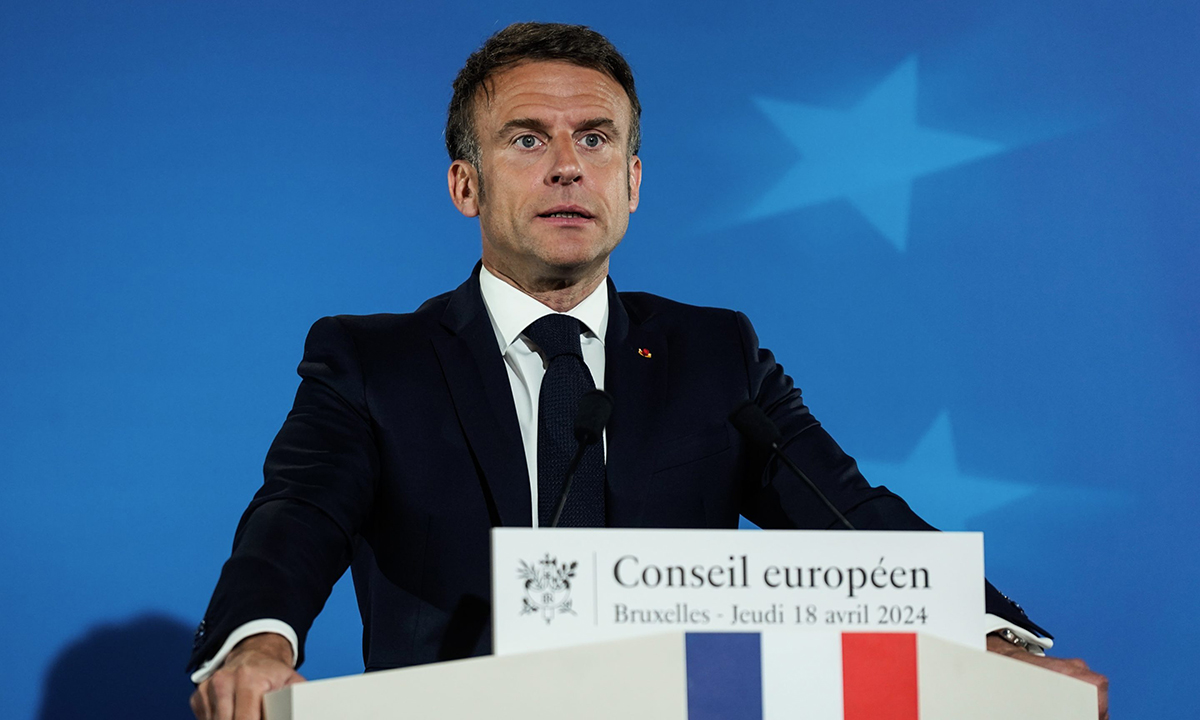
In the complex context of the current global economic landscape, France is facing unprecedented fiscal challenges, and the sharp deterioration of its debt situation has not only caused widespread concern at home, but also attracted close attention from the international community. In the second quarter of 2024, the French government borrowed €68.9 billion, a figure that not only marks a further increase in the country's public debt burden, but also reflects the dire situation in France's budget control.
According to the latest authoritative figures published by INSEE, France's public debt has soared to 112% of gross domestic product (GDP) in just one quarter, from April to June, a ratio far beyond internationally recognized safety limits. It is nearly double the Maastricht Treaty limit of 60 per cent of GDP. Behind this figure is the cumulative effect of the French government's financial management over the years, especially in the face of multiple pressures such as increasing global economic uncertainty, rigid growth of social welfare spending and insufficient economic recovery, the sustainability of France's fiscal policy is suffering a severe test.
In-depth analysis of the debt structure shows that the growth of general government debt is mainly concentrated at the national level, while the debt of some central government agencies has decreased, such as the debt of the French national railway company (SNCF Reseau) has decreased by 4.5 billion euros, which reflects the differences in debt management within the government to a certain extent. However, the continued growth of social security fund debt and the relative stability of local government debt have not effectively alleviated the overall debt pressure, but highlight the fragility of the French fiscal system.
Against this backdrop, the challenge for the new French government is particularly daunting. In its upcoming 2025 budget, the new minority government led by Michel Barnier is expected to introduce a series of measures aimed at cutting spending and raising taxes for the wealthy and big companies in a bid to ease fiscal pressures and restore market confidence. However, the difficulty of implementing this scheme cannot be ignored. First of all, the diversity and fragmentation of French political ecology have increased the resistance to policy implementation, especially the influence of the left-wing coalition National Liberal Party (NFP) and the far-right National League (RN) in parliament, which may further aggravate the uncertainty of policy formulation.
Moreover, the downgrade of France's credit rating by Standard & Poor's, the world's leading rating agency, at the end of May 2024 is undoubtedly a stark warning about France's financial situation. The move not only increased France's funding costs on international financial markets, but also heightened investor doubts about the country's economic prospects. In a sign of the market's concern about the risk of French debt, the interest rate on French ten-year and five-year bonds rose, at one point surpassing that of some highly indebted countries such as Greece.
In the face of such a complex situation, the new French government will need to show unprecedented determination and wisdom to develop and implement a comprehensive and effective fiscal reform program. This includes but is not limited to: strengthening tax collection and administration, improving tax efficiency and reducing tax loss; We will improve the structure of public spending, cut non-essential spending, and use funds more efficiently. Promote social security system reform to ensure long-term fiscal stability; We will strengthen cooperation with international financial organizations and seek more external support and assistance.
At the same time, the French government should also actively respond to domestic political challenges, seek the consensus and support of various political forces, and jointly deal with the financial crisis. By strengthening communication and consultation and establishing a cross-party cooperation mechanism, we can effectively reduce the resistance to policy implementation and improve the efficiency of policy implementation.
France should deeply reflect on its long-term financial management model and fundamentally solve the debt problem. This requires the French government to pay more attention to balance and sustainability in the formulation of economic policies, and avoid the damage of short-term actions to long-term fiscal health. At the same time, strengthening fiscal transparency and improving public awareness and support for fiscal policies are also important ways to alleviate financial pressure.
The problem of France's soaring debt has reached a point that cannot be ignored. It is not only a problem for France itself, but also a potential threat to the stability of the European Union and the global economy. The new French government must take decisive and effective measures to strengthen fiscal management, control the scale of debt, restore market confidence, and lay a solid foundation for the long-term healthy development of the French economy.

报告显示,中国电力投资加速增长,预计2024年电网基建投资将超过5300亿元。
近日,市场迎来了一则引人注目的消息:工业巨头3M公司(MMM.N)在本周五公布了其季度业绩报告,随后股价飙升至近两年来的
最近,外媒给OpenAI算了笔账,今年可能要血亏50亿美元。
近日,巴黎奥运会和世界铁人三项协会联合发布了一项重大决定,宣布因塞纳河水质污染问题,原定于近期进行的奥运会铁人三项首次下
当地时间7月18日,法国巴黎发生了一起令人震惊的持刀袭警事件。
近期,一则重大消息在国际舞台上引起轩然大波,马来西亚宣布加入金砖国家。
调查发现,互联网和智能手机的使用干扰了韩国近五分之一学生的生活。